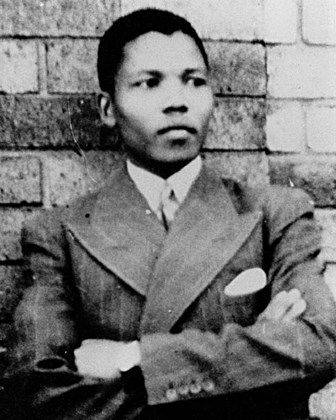When Amarasan Pather was still a young man in South Africa, his older cousin Masla Pather was sent to the country's Robben Island prison for two years.
His cousin's crime was allowing a university friend, Nelson Mandela, to hold a political meeting in his home.
"They had the same beliefs," said Pather, Friday, from his home in North Vancouver. "He really believed in equality."
After the authorities found out about the meeting, Masla Pather, a medical doctor, was arrested and sent to Robben Island, where Mandela was also imprisoned for 18 of the 27 years he was jailed.
Mandela helped his cousin to break rocks in the quarry the prisoners were forced to work in, said Pather, noting that as a doctor, his cousin wasn't used to hard physical labour.
When Masla Pather was released, he faced restrictions including a ban on being allowed to work in government hospitals. He had quotas on the number of people he could meet with.
Those were among the many hardships faced by political activists in the decades before Mandela was released and went on to lead South Africa as its first democratically elected president in 1994.
As tributes poured in Friday for Mandela, who died Thursday night at 95, Amarasan Pather and his wife Sylvie reflected on life under the apartheid system in South Africa that Mandela ended.
Growing up as part of an ethnically East Indian family in Transvaal, Sylvie Pather said, "We were classified as non-whites."
Racial divides dominated everything in the country, including where people were allowed to live and work.
"I saw Africans being thrown into vans. .. treated like dogs," she said. "They had to have an identity card."
Everyone learned early not to argue with the police, she said. "It was a military state at that time."
However, she had heard about Mandela, who was working with the African National Congress underground.
Growing up under apartheid, "I did not know that life was any different anywhere else in the world," said Amarasan.
That changed when he went to London to study, and life in Africa became unbearable after the couple's children were born.
He remembered walking by a fairground with a Ferris wheel. "My son wanted to go on the rides," he said. "We had to tell him he couldn't go." The rides were for whites only.
One of the breaking points came when their son, then less than a year old, was ill and they were rushing to see a doctor.
When they got to the building, a white woman told them, "'You can't use this elevator. You have to take the steps,'" said Sylvie. "I had a sick child."
"To be treated that way, it was very demeaning."
The couple left South Africa and came to North Vancouver in 1973 with only the $3,000 they were allowed to take out of the country.
At the motel where they stayed, Sylvie said she was stunned to see a white woman cleaning - she had never seen that sight before.
While they built their lives in Canada, the couple watched the historic changes that Mandela brought in over the decades, celebrating when he became South Africa's first democratically elected president in 1994.
When the couple heard the news of Mandela's death on Thursday, "I was very sad," said Sylvie. "He kept the country together. He came out so victoriously, not a bitter, angry man."
"He did some wonderful things that very few people have ever been able to do through history," said Amarasan. "I think he had done as much as he could for South Africa."
But Mandela didn't do it alone, he said.
"There was a lot of sacrifice required on the part of the people."



